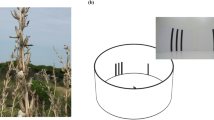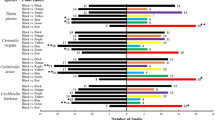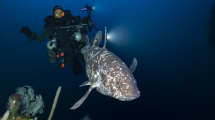Abstract
WE have recently received from Mr. L. Glauert, Curator of the Public Museum, Perth (W. Australia) a number of shells of the Dune (or Pointed) Snail Cochlicella acuta (olim barbara). They were obtained by Mr. K. R. Norris in the neighbourhood of Free-mantle, where they are abundantly found in gardens and open country and on sand hills. The home of this species is on the Mediterranean coasts and up the west coast of Europe to the British Isles and Denmark, and there is no doubt that its occurrence in Western Australia is due to its having been accidentally transported by human agency. The wide dispersal of certain species of land molluscs (for example, Subulina octona) by this means is familiar to many zoologists; but this instance is interesting from more than one point of view.
This is a preview of subscription content, access via your institution
Access options
Subscribe to this journal
Receive 51 print issues and online access
$199.00 per year
only $3.90 per issue
Buy this article
- Purchase on SpringerLink
- Instant access to full article PDF
Prices may be subject to local taxes which are calculated during checkout
Similar content being viewed by others
References
Cf. Aubertin, Ellis and Robson, Proc. Zool. Soc., London, 1931, p. 1039.
Author information
Authors and Affiliations
Rights and permissions
About this article
Cite this article
ROBSON, G. Importation of the Dune Snail into Western Australia. Nature 132, 712 (1933). https://doi.org/10.1038/132712a0
Issue date:
DOI: https://doi.org/10.1038/132712a0



